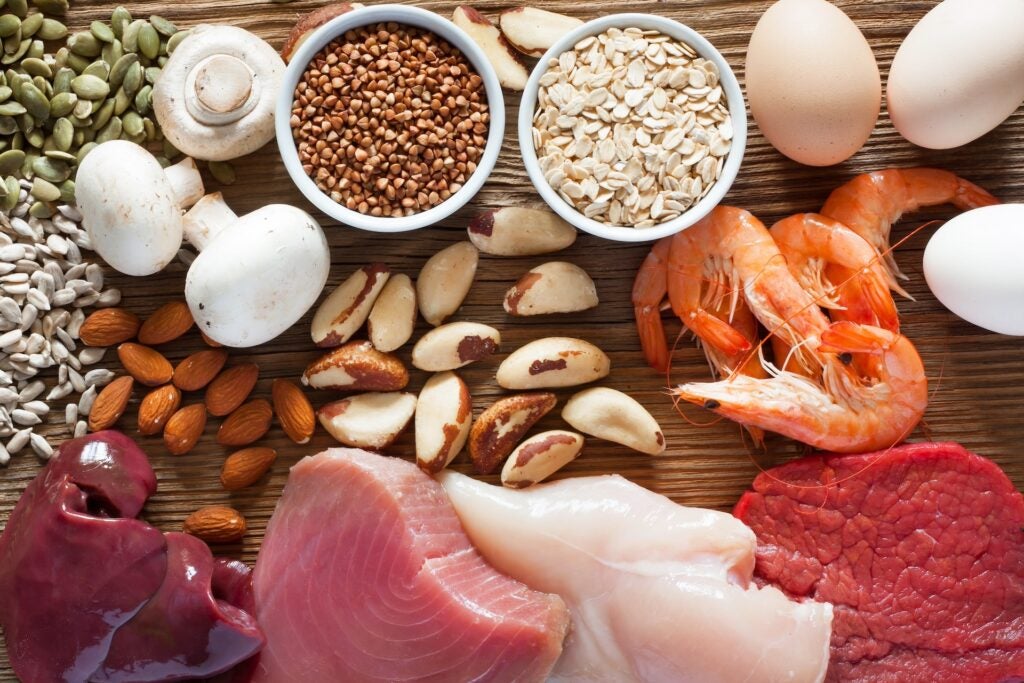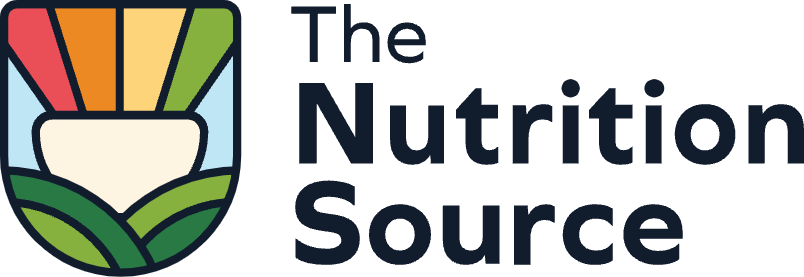
Selenium is a trace mineral, which means that the body only needs a small amount of it. It is found naturally in foods or as a supplement. Selenium is an essential component of various enzymes and proteins, called selenoproteins, that help to make DNA and protect against cell damage and infections; these proteins are also involved in reproduction and the metabolism of thyroid hormones. Most selenium in the body is stored in muscle tissue, although the thyroid gland holds the highest concentration of selenium due to various selenoproteins that assist with thyroid function.
Recommended Amounts
RDA: The Recommended Dietary Allowance (RDA) for adult men and women 19+ years of age is 55 micrograms daily. Women who are pregnant and lactating need about 60 and 70 micrograms daily, respectively.
UL: The Tolerable Upper Intake Level (UL) for selenium for all adults 19+ years of age and pregnant and lactating women is 400 micrograms daily; a UL is the maximum daily intake unlikely to cause harmful effects on health.
Selenium and Health
Selenium is a component of selenoproteins and enzymes. These have antioxidant properties that help to break down peroxides, which can damage tissues and DNA, leading to inflammation and other health problems.
Food Sources
The amount of selenium in foods can vary widely depending on the selenium content of the soil in which it is grown. Soil content varies widely by region. Plant foods obtain selenium from soil, which will then affect the amount of selenium in animals eating those plants. Protein foods from animals are generally good sources of selenium. Seafood, organ meats, and Brazil nuts are the foods highest in selenium although Americans obtain most of their selenium from everyday staples, like breads, cereals, poultry, red meat, and eggs.
- Brazil nuts
- Fin fish and shellfish
- Beef
- Turkey
- Chicken
- Fortified cereals
- Whole-wheat bread
- Beans, lentils
Signs of Deficiency and Toxicity
Deficiency
A deficiency of selenium in the U.S. is rare as the soil throughout North America is generally rich in selenium. [7] Even if people live in areas with lower-selenium soil, the transport of food across the region as well as the use of fortified foods and supplements reduce the risk of deficiency.
Two conditions are associated with severe selenium deficiency: 1) Keshan disease, a type of cardiomyopathy, or disease of heart muscle, and 2) Kashin-Beck disease, a form of osteoarthritis.
Symptoms:
- Nausea, vomiting
- Headaches
- Altered mental state, confusion
- Lethargy
- Seizures
- Coma
Groups at risk for deficiency:
- People living in low-selenium regions who also eat a primarily plant-based diet. This is rarely seen in the U.S., but populations in China, Russia, and Europe are at risk as their soil is generally low in selenium. The risk is further increased in people living in these areas who eat a vegetarian or vegan diet
- People with HIV. The virus can lead to diarrhea, malabsorption of nutrients, and decreased appetite.
- People with kidney failure undergoing dialysis. This mechanical process of filtering the blood can remove some selenium. The dietary restrictions required with kidney failure can also decrease overall food intake, leading to a risk of selenium deficiency.
Toxicity
Chronically high intakes of selenium can lead to health problems, ranging from muscle tremors, hair loss, stomach upset, and lightheadedness, to more severe outcomes of heart attack, respiratory distress, or kidney failure. Brazil nuts are exceptionally high in selenium even when grown in low-selenium soil, with even one nut containing more than the RDA. Eating too many of these nuts on a daily basis can reach a toxic level, as well as using supplements that contain selenium in excess of the RDA.
Early symptoms:
- Metallic taste, bad breath
- Nausea, diarrhea
- Hair loss
- Nail brittleness or discoloration
- Skin rash or lesions
- Skin flushing
- Fatigue
- Irritability
- Muscle tenderness
Did You Know?
- Selenium and iodine have a synergistic relationship that is especially important for a healthy thyroid. Iodine is a component of thyroid hormone, and selenium as a selenoprotein helps to convert the thyroid hormone into its active form. Both minerals are needed by the thyroid in adequate amounts; too much of one can contribute to a deficiency of the other.
- Selenium supplements are promoted to offer several benefits, including boosting immune function, improving hair and nail health, and supporting a healthy thyroid. They are sometimes combined with other antioxidant vitamins such as vitamin E or C. These supplements usually contain between 100-400 micrograms of selenium per dose (the Tolerable Upper intake Level is 400 micrograms). However, if a person is not at high risk for a deficiency, there is no evidence that taking a higher amount of selenium promotes the health benefits shown on these supplement labels.
Related
Last reviewed March 2023
Terms of Use
The contents of this website are for educational purposes and are not intended to offer personal medical advice. You should seek the advice of your physician or other qualified health provider with any questions you may have regarding a medical condition. Never disregard professional medical advice or delay in seeking it because of something you have read on this website. The Nutrition Source does not recommend or endorse any products.

